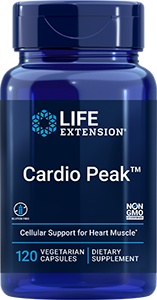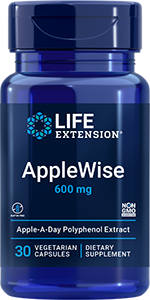Arthritis supplement use associated with lower marker of inflammation
Tuesday, November 20, 2012. An article published online on November 8, 2012 in the American Journal of Epidemiology reports an association between supplementation with glucosamine, chondroitin or fish oil and a reduction in serum C-reactive protein (CRP), a marker of inflammation. These supplements are regularly used by people with arthritis, a disease characterized by inflammation and joint degeneration.
Researchers at Seattle's Fred Hutchinson Cancer Center analyzed data from 9,947 men and women who participated in the 1999-2004 cycles of the National Health and Nutrition Examination Survey (NHANES). Subject interviews provided information concerning health behaviors and diet, including the type and frequency of dietary supplements used during the prior thirty days. Regular use of a supplement was defined as consumption during at least twenty days per month. Inflammation was assessed via blood sample analysis for serum high sensitivity C-reactive protein (hs-CRP).
Higher CRP levels were observed in association with greater age and body mass index. Increased dietary fiber was associated with lower CRP. Participants who reported regular use of glucosamine had CRP levels that were 17 percent less on average in comparison with those who didn't use glucosamine. For chondroitin users, the reduction in CRP averaged 22 percent and for fish oil users, CRP levels averaged 16 percent lower. When supplement use was analyzed by gender, women were found to experience greater effects from glucosamine and chondroitin in comparison with men; however, men, but not women, experienced a reduction in CRP in association with the use of ginseng.
The authors remark that fish oil contains omega-3 fatty acids that reduce inflammation via inhibition of nuclear factor kappa beta (NF-kB), as well as by inhibition of proinflammatory omega-6 polyunsaturated fatty acids by displacement of omega-6 stores in cell membranes. "To our knowledge, this is the largest study that has investigated the association between use of glucosamine and chondroitin supplements and a marker of inflammation in humans," they report. "Our finding of lower hs-CRP levels among users of glucosamine and chondroitin supports laboratory studies which suggest that glucosamine and chondroitin supplementation may reduce inflammation via inhibition of nuclear factor kappa B activation."
"Given the number of diseases with which inflammation is associated, such as cancer and cardiovascular disease, there is a need to find safe and effective ways to reduce inflammation," they conclude. "Research suggests that these three supplements have excellent safety profiles, supporting their potential role in disease prevention. It is therefore important that the potential antiinflammatory role of these supplements be further investigated." |
 |
|
The November, 2012 issue of the Journal of Clinical Nursing published an article by researchers in Beirut, Lebanon that discusses the widespread use of complementary and alternative therapies among men and women with arthritis.
Professor Nada Alaaeddine, who is the Head of the Regenerative and Inflammation Lab in the Faculty of Medicine at the University of St Joseph, and colleagues assessed the use of alternative and complementary therapies among 250 Lebanese adults aged 20 to 90 with rheumatoid or osteoarthritis. Questionnaires completed by the participants provided information on type of therapies used and disease status, including pain intensity, sleeping pattern and activity level, before and after treatment.
Fifty-eight subjects reported the use of complementary or alternative arthritis therapies in addition to conventional medicine. Those who used complementary therapies tended to be younger than nonusers, and were likelier to have osteoarthritis than rheumatoid arthritis. Therapies reported included herbs, exercise, massage, acupuncture, meditation, yoga and dietary supplements. Among participants who reported using herbs, the majority found them to be helpful. Overall, complementary and alternative therapies reduced pain, increased sleep and improved the ability to engage in daily activities. Side effects, which were reported in a minority of subjects, were not considered serious and were reversible.
"Our study underlines the importance of healthcare professionals being knowledgeable about the potential use of CAT when providing medical care to patients with arthritis" Dr Alaaeddine commented. "Complementary and alternative therapy use is increasing and this study shows that it provided self-reported benefits for patients with rheumatoid arthritis and osteoarthritis." |
|

|
 |
|
Extensive research demonstrates that the botanical extracts hawthorn and arjuna deliver optimum support for normal heart muscle function and coronary artery health. Used for centuries in Europe for heart health, the cardiotonic effects of hawthorn extract have been well documented in numerous clinical trials.
Hawthorn contains specific bioflavonoid complexes targeted to help promote normal circulation and efficient heart muscle function. Studies indicate that the constituents in hawthorn powerfully support:
- Strong contractile force of human heart muscle.
- Protection for heart muscle cells from oxidant damage.
- Normal gene expression to promote cardiovascular health.
- Improved cardiovascular performance.
Traditionally used for cardiovascular health, arjuna extract complements the effects of hawthorn in support of enhanced heart function.
|
|
 |
|
Recent studies by three separate laboratories have concluded that polyphenols extracted from apples extend life span in laboratory models by up to 12%. Apples, and especially their skin, are rich in an array of polyphenols. One particular major bioactive polyphenol, phloridzin, found in the skin of many apple species, has been shown to act as a powerful agent against glycation and other destructive processes in the body. Phloridzin also regulates cell-to-cell signaling and supports healthy glucose levels in those already within normal range by inhibiting the glucose-6-phosphatase enzyme.
Apple polyphenols can slow triglyceride absorption from the intestine by blocking pancreatic lipase, an enzyme specifically required to break down triglyceride fats.
Along with phloridzin, apples contain chlorogenic acid which supports healthy glucose levels in those already within normal range by inhibiting the glucose-6-phosphatase enzyme, and by increasing some cellular mechanisms that are stimulated by insulin in liver cells. |
|
|



